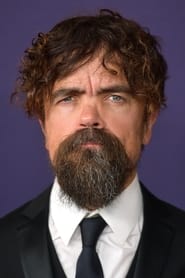
Ask Your Own Question
What is the plot?
In "The Free Companies of Essos," the episode begins with a sweeping view of the vast and diverse landscapes of Essos, showcasing the various cultures and peoples that inhabit the continent. The narrator introduces the concept of the Free Companies, mercenary groups that operate independently, often for profit, and sometimes for their own agendas. The camera pans over bustling markets, war-torn cities, and the camps of these mercenaries, setting the stage for the exploration of their role in the ongoing conflicts of the region.
The episode then shifts focus to the origins of several notable Free Companies, beginning with the Second Sons. The narrative details how this group was formed by former soldiers who were disillusioned with their lords and sought to carve out their own destinies. Interviews with former members reveal their motivations, highlighting themes of loyalty, betrayal, and the harsh realities of war. The Second Sons are depicted as a formidable force, known for their ruthlessness and tactical prowess, often taking on contracts that others would shy away from.
Next, the episode introduces the Golden Company, a legendary group with a storied history. The backstory reveals that the Golden Company was founded by exiled nobles and has a reputation for being one of the most disciplined and effective mercenary forces in Essos. The narrative emphasizes their ambition to restore the Targaryen dynasty, showcasing their strategic planning and the charismatic leadership of their commanders. The internal dynamics of the Golden Company are explored, revealing the tensions between loyalty to their cause and the personal ambitions of individual members.
The focus then shifts to the Stormcrows, another Free Company known for their chaotic and unpredictable nature. The episode illustrates their formation from a mix of outcasts and adventurers, highlighting their willingness to fight for the highest bidder. Interviews with their leaders provide insight into their motivations, often driven by a desire for wealth and glory rather than any noble cause. The Stormcrows' reputation for being mercenaries without a moral compass is underscored by their past actions in various conflicts across Essos.
As the episode progresses, it delves into the relationships between these Free Companies and the various factions vying for power in Essos. The narrative details how these mercenaries often find themselves caught in the crossfire of larger political struggles, illustrating the precarious nature of their existence. The alliances and betrayals that occur among the Free Companies are highlighted, showcasing the shifting loyalties that define their world.
The episode also features dramatic reenactments of key battles involving the Free Companies, providing a visceral sense of the chaos and brutality of warfare. The camera captures the clashing of swords, the cries of soldiers, and the strategic maneuvers employed by the mercenaries. Each battle is depicted with a focus on the individual experiences of the fighters, revealing their fears, hopes, and the harsh realities of combat.
Towards the end of the episode, the narrative reflects on the impact of the Free Companies on the broader political landscape of Essos. The mercenaries are shown as both a destabilizing force and a necessary evil, often filling the void left by failed states and corrupt leaders. The episode concludes with a sense of uncertainty about the future, leaving viewers to ponder the role of these mercenaries in the ongoing struggles for power and survival in Essos.
What is the ending?
In the episode "The Free Companies of Essos," the narrative concludes with a focus on the various mercenary groups operating in Essos, their motivations, and the impact they have on the larger political landscape. The episode highlights the fates of several key characters involved in these companies, showcasing their ambitions, struggles, and the often brutal realities of their lives as mercenaries.
As the episode unfolds, it begins with a sweeping view of the vast landscapes of Essos, setting the stage for the mercenary culture that thrives in this region. The camera pans over bustling cities and war-torn villages, illustrating the chaos that breeds the need for free companies.
The first scene introduces the audience to the concept of the Free Companies, emphasizing their role as soldiers for hire, often fighting for the highest bidder. We see various groups, such as the Second Sons and the Golden Company, each with their own distinct identities and leaders. The leaders of these companies are portrayed as ambitious and ruthless, driven by the desire for wealth and power.
Next, the narrative shifts to the Second Sons, led by the charismatic but morally ambiguous character, Daario Naharis. The audience witnesses his internal conflict as he grapples with loyalty to his men versus the allure of power and influence. His interactions with other mercenaries reveal the complex dynamics of trust and betrayal that permeate their world. The scene captures the tension in the air, as alliances are formed and broken, showcasing the precarious nature of their existence.
In another segment, the Golden Company is introduced, with a focus on their storied history and their aspirations to reclaim the Iron Throne for House Targaryen. The audience learns about their past victories and failures, which adds depth to their character as a group. The leaders of the Golden Company are depicted as determined and strategic, willing to do whatever it takes to achieve their goals, even if it means sacrificing their own men.
As the episode progresses, we see the impact of the Free Companies on the local populace. Scenes of conflict and violence illustrate the harsh realities faced by civilians caught in the crossfire of mercenary battles. The emotional weight of these moments is palpable, as families are torn apart and communities are devastated by the greed of the mercenaries.
The climax of the episode centers around a significant battle involving the Second Sons and the Golden Company. The tension builds as both sides prepare for conflict, showcasing the strategies and tactics employed by each group. The battle is chaotic and brutal, with vivid imagery of combat, bloodshed, and the desperation of the fighters. Key characters face pivotal moments that test their loyalties and resolve.
In the aftermath of the battle, the fates of the main characters are revealed. Daario Naharis emerges as a survivor, but the cost of victory weighs heavily on him. His internal struggle is evident as he reflects on the lives lost and the moral implications of his choices. The leaders of the Golden Company, while initially triumphant, face the harsh reality of their ambitions as they deal with the consequences of their actions.
The episode concludes with a somber tone, highlighting the cyclical nature of violence and the fleeting nature of power in the world of Essos. The final scenes serve as a poignant reminder of the human cost of war, leaving the audience to ponder the true price of ambition and the fragility of alliances in a land where loyalty is often bought and sold.
Is there a post-credit scene?
In the episode "The Free Companies of Essos" from the Game of Thrones specials, there is no post-credit scene. The episode focuses on exploring the various mercenary groups known as the Free Companies in Essos, detailing their origins, motivations, and the impact they have on the political landscape of the continent. It delves into the lives of these soldiers for hire, their allegiances, and the chaos they often bring to the regions they inhabit. The episode concludes without any additional scenes or content after the credits.
What are the main motivations of the Free Companies in Essos?
The Free Companies in Essos are primarily motivated by the pursuit of wealth, power, and survival. Many of these mercenary groups are composed of soldiers who have been displaced by war or have chosen to abandon their homelands in search of fortune. Their loyalty is often to gold rather than to any cause, leading them to switch allegiances based on the highest bidder. This mercenary lifestyle is driven by a desire for personal gain, as well as the thrill of battle and adventure.
Who are some notable leaders of the Free Companies and what are their characteristics?
Notable leaders of the Free Companies include characters like the sellsword captain, the 'Golden Company' led by the charismatic and ambitious Young Griff, and the infamous mercenary, 'Bloodraven'. Each leader exhibits distinct characteristics: Young Griff is portrayed as cunning and strategic, seeking to reclaim the Iron Throne, while Bloodraven is known for his ruthlessness and tactical prowess in battle. Their leadership styles reflect their personal ambitions and the cultures of their respective companies.
How do the Free Companies interact with the political landscape of Essos?
The Free Companies often act as wild cards in the political landscape of Essos, influencing the power dynamics between city-states and noble houses. Their presence can shift the balance of power, as they are frequently hired by various factions to bolster their military strength. This mercenary nature allows them to play both sides, creating alliances and rivalries that can lead to significant political upheaval. Their actions can destabilize regions, as they are not bound by the same loyalties as traditional armies.
What role do the Free Companies play in the larger conflict of the series?
The Free Companies serve as a crucial element in the larger conflict of the series, particularly in the power struggles between the various factions vying for control of Westeros. Their involvement in battles and skirmishes can turn the tide for one side or another, making them pivotal players in the ongoing war for the Iron Throne. Their mercenary nature allows them to be unpredictable, adding an additional layer of complexity to the already intricate political landscape.
What are the cultural backgrounds of the Free Companies and how do they affect their behavior?
The Free Companies are composed of individuals from diverse cultural backgrounds, including the Dothraki, the Rhoynar, and various Westerosi exiles. This diversity influences their behavior, tactics, and interactions with one another. For instance, the Dothraki bring their nomadic warrior culture, valuing honor and bravery in battle, while the Rhoynar may emphasize strategic cunning and adaptability. These cultural differences can lead to both camaraderie and conflict within the companies, shaping their dynamics and effectiveness in combat.
Is this family friendly?
"The Free Companies of Essos" is a special feature from the "Game of Thrones" series that delves into the mercenary groups operating in Essos. While it provides fascinating insights into the lore and characters of the world, it contains several elements that may be objectionable or upsetting for children or sensitive viewers.
-
Violence and Warfare: The discussion of mercenary groups often includes depictions of battles, bloodshed, and the harsh realities of war, which may be graphic or unsettling.
-
Moral Ambiguity: The motivations of the free companies are often morally complex, showcasing themes of betrayal, greed, and survival that may be difficult for younger audiences to understand.
-
Adult Themes: The special may touch on themes of loyalty, betrayal, and the darker aspects of human nature, which can be heavy and distressing.
-
Language: There may be strong language or adult dialogue that could be inappropriate for younger viewers.
-
Emotional Turmoil: Characters may express deep emotional pain, loss, or conflict, which could be upsetting for sensitive viewers.
Overall, while the special is rich in storytelling and world-building, it contains elements that may not be suitable for all audiences, particularly children.
























